Baifeng Li
A comparative study of Grid and Natural sentences effects on Normal-to-Lombard conversion
Sep 19, 2023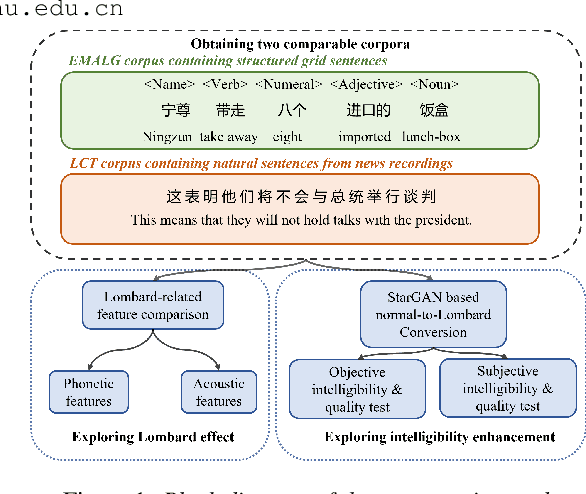
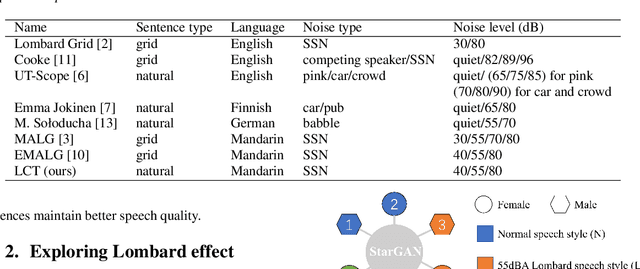
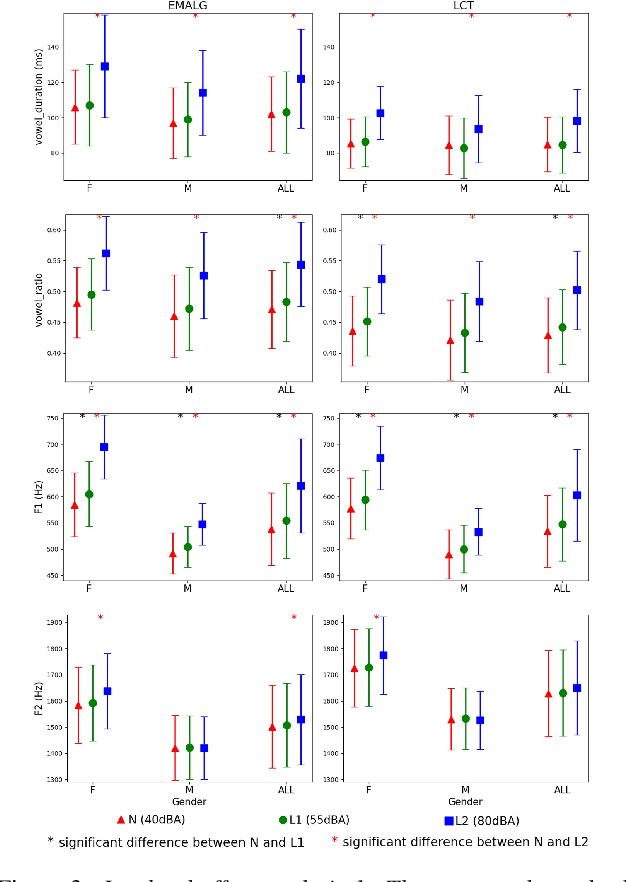
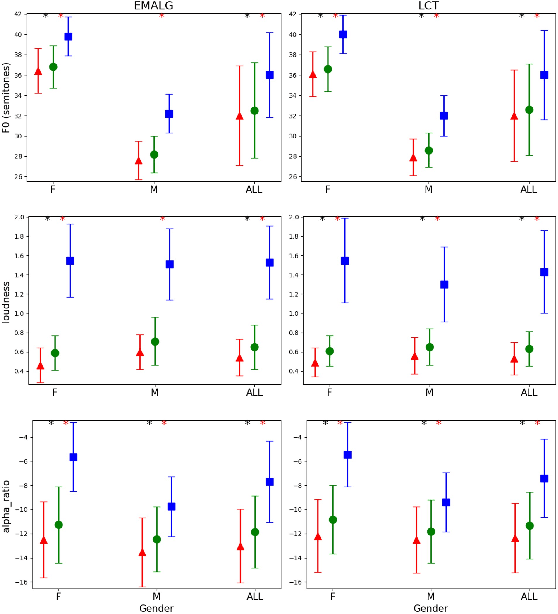
Abstract:Grid sentence is commonly used for studying the Lombard effect and Normal-to-Lombard conversion. However, it's unclear if Normal-to-Lombard models trained on grid sentences are sufficient for improving natural speech intelligibility in real-world applications. This paper presents the recording of a parallel Lombard corpus (called Lombard Chinese TIMIT, LCT) extracting natural sentences from Chinese TIMIT. Then We compare natural and grid sentences in terms of Lombard effect and Normal-to-Lombard conversion using LCT and Enhanced MAndarin Lombard Grid corpus (EMALG). Through a parametric analysis of the Lombard effect, We find that as the noise level increases, both natural sentences and grid sentences exhibit similar changes in parameters, but in terms of the increase of the alpha ratio, grid sentences show a greater increase. Following a subjective intelligibility assessment across genders and Signal-to-Noise Ratios, the StarGAN model trained on EMALG consistently outperforms the model trained on LCT in terms of improving intelligibility. This superior performance may be attributed to EMALG's larger alpha ratio increase from normal to Lombard speech.
Mandarin Lombard Flavor Classification
Sep 14, 2023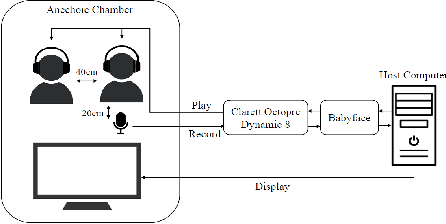


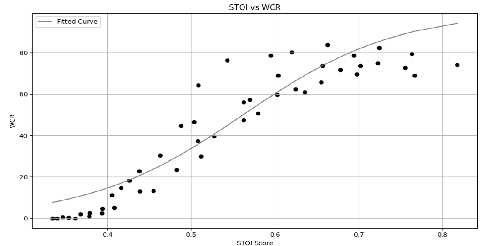
Abstract:The Lombard effect refers to individuals' unconscious modulation of vocal effort in response to variations in the ambient noise levels, intending to enhance speech intelligibility. The impact of different decibel levels and types of background noise on Lombard effects remains unclear. Building upon the characteristic of Lombard speech that individuals adjust their speech to improve intelligibility dynamically based on the self-feedback speech, we propose a flavor classification approach for the Lombard effect. We first collected Mandarin Lombard speech under different noise conditions, then simulated self-feedback speech, and ultimately conducted the statistical test on the word correct rate. We found that both SSN and babble noise types result in four distinct categories of Mandarin Lombard speech in the range of 30 to 80 dBA with different transition points.
EMALG: An Enhanced Mandarin Lombard Grid Corpus with Meaningful Sentences
Sep 13, 2023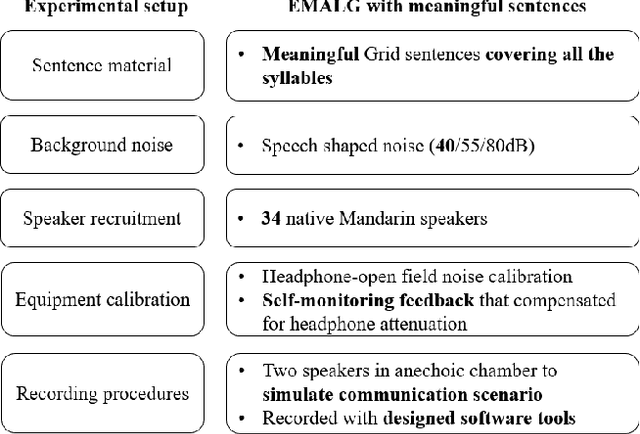
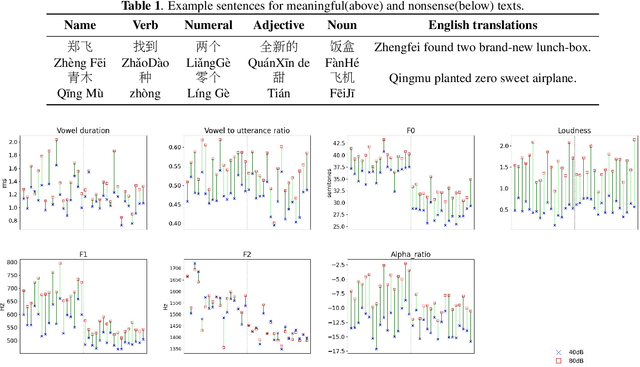
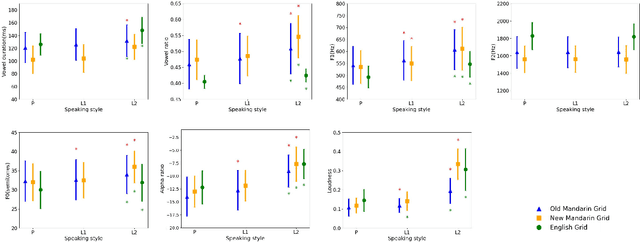
Abstract:This study investigates the Lombard effect, where individuals adapt their speech in noisy environments. We introduce an enhanced Mandarin Lombard grid (EMALG) corpus with meaningful sentences , enhancing the Mandarin Lombard grid (MALG) corpus. EMALG features 34 speakers and improves recording setups, addressing challenges faced by MALG with nonsense sentences. Our findings reveal that in Mandarin, female exhibit a more pronounced Lombard effect than male, particularly when uttering meaningful sentences. Additionally, we uncover that nonsense sentences negatively impact Lombard effect analysis. Moreover, our results reaffirm the consistency in the Lombard effect comparison between English and Mandarin found in previous research.
 Add to Chrome
Add to Chrome Add to Firefox
Add to Firefox Add to Edge
Add to Edge